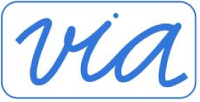My university is constantly looking for new, talented students. Thanks to Google for sponsorship the Open Informatics program is organizing a meeting with secondary school teachers today. We want to show what we do and also get a feedback. My part is to explain how we use Google tools in education. I must admit, I am little bit biased. I have worked for Google for more than two years and I was using all Google tools on everyday basis.
My presentation will show how I work with students in the Internet Application Development (VIA) course. Students will learn how to invent, validate and develop a simple Android tablet application in one semester. Hands-on experience is the only way to learn how to work and act while developing an application. I am encouraging students to use the Agile software techniques in projects. Team members, except at school, are not in one place they need to communicate, use the Internet. Consequently collaboration is the most important skill students need to learn.
To achieve our goals it is very important to choose the right software tools. They need to be simple and support daily project activities. Clearly, all the tools need to support cooperation. We have chosen the Google Apps education edition. In my opinion it offers superb tools for cooperation and group work.
What we use? The VIA home page is hosted on Google sites. The calendar for the class, map and other widgets are included. For project tracking we use Docs and Blogger. I also use quite a lot Forms to run surveys. Some students created their home pages on code.google.com, some have also chosen Sites. For discussion we use Google groups. Some of the teams use Google Presentation Docs. In the initial part of the project students need to validate the app hypothesis and beside Forms, they used also Google Insight and Analytics. For the development we use all the Android and Google App Engine with lot of introductory staff on Google Code.
Almost all the students entering the course have their private gmail address. This is complicating some of the sharing, administration and access to apps, since they do not use the VIA account as primary. Moving email address is probably one of the most difficult problems.
The VIA course is completely open, all documents and projects are public. I am reporting about what is happening in each class periodically in this blog. We have thirteen projects. I’d like to attract other students and join us. I can imagine, we can use these tools for working with students before they get to the university, we definitely can introduce and motivate them to new technologies. Talk to us. We can also work with other universities and developers worldwide. These are the benefits of great software democratization process on the net. Join or follow!

Useful details to get knowing the VIA homepage. Thank you very much. kovai ecommerce solutions | E-Commerce in Coimbatore
ReplyDeleteIndeed a great post. Thanks for sharing with us. I would love to share this post. keep posting.
ReplyDeleteEducation software development company